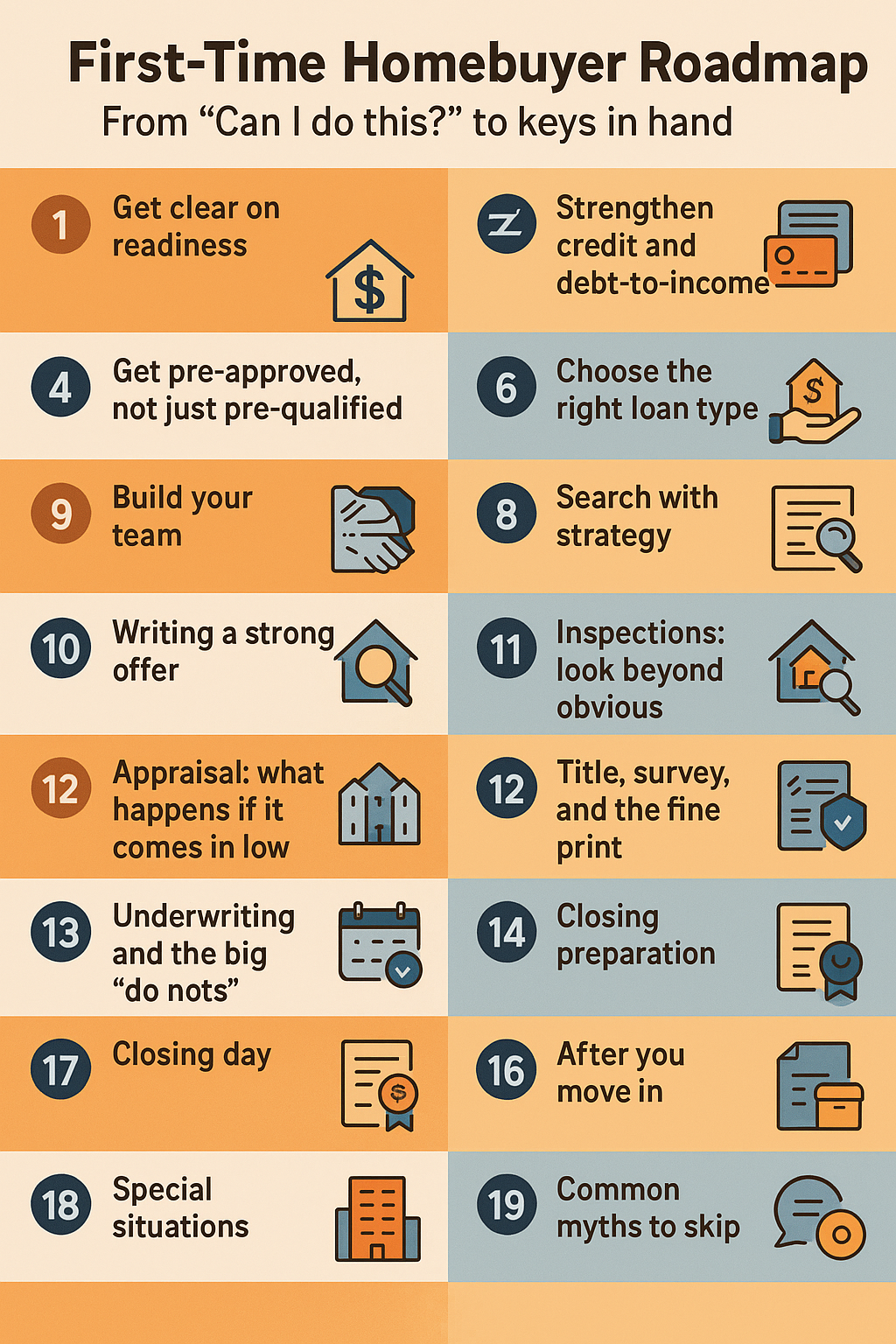🏡 How to Sell Your House: A Step-by-Step Guide for a Smooth, Successful Sale
Steps to consider when selling your home:
Selling your home is a big deal. Whether you're upgrading, downsizing, or relocating, the process can feel a little overwhelming—but it doesn’t have to be. With the right plan (and the right agent), you can sell your home quickly, confidently, and for top dollar.
Here’s a step-by-step guide on how to sell your house in today’s market:
1. Decide When to Sell
Timing can impact your sale price and how fast your home sells. Spring and early summer tend to be hot seasons in real estate, but that doesn’t mean other months are off-limits. Life changes and local market conditions are just as important.
✅ Tip: Consult a local real estate expert (👋) to find out what’s happening in your area.
2. Find a Great Real Estate Agent
This is one of the most important decisions you’ll make. A skilled listing agent will help you price your home, market it professionally, negotiate with buyers, and handle all the paperwork.
✅ Look for: Strong local knowledge, great communication, and a proven marketing strategy.
3. Determine Your Home’s Value
Overpricing can scare buyers away. Underpricing leaves money on the table. Your agent will run a comparative market analysis (CMA) to help you set a competitive and realistic price.
✅ Pro Tip: The right price generates more interest—and more offers.
4. Prepare Your Home for Sale
First impressions are everything. Declutter, deep clean, and take care of small repairs. Consider professional staging or virtual staging to help buyers envision the potential.
📸 Must-do’s:
- Boost curb appeal
- Neutralize paint colors
- Clean windows and floors
- Make sure each room has a clear purpose
✅ Bonus: Ask your agent what upgrades (if any) offer the best return.
5. Market Like a Pro
Your home deserves more than just a “For Sale” sign. A modern marketing plan includes:
- Professional photos & video tours
- Listing on MLS and top real estate websites
- Social media promotion
- Open houses & private showings
✅ Strategy matters: The more eyes on your home, the faster it sells.
6. Review Offers and Negotiate
Once offers come in, your agent will help you review them—price isn’t the only factor. You’ll consider financing type, contingencies, closing date, and buyer flexibility.
✅ Tip: Don’t be afraid to counteroffer! Your agent is there to get you the best deal.
7. Go Under Contract & Prepare for Closing
Once you accept an offer, the buyer will schedule a home inspection and appraisal. You may need to negotiate repairs or credits. During this time, your agent will help you keep things on track and ensure deadlines are met.
✅ Heads up: Stay flexible and keep your home “show-ready” just in case anything falls through.
8. Close the Deal
On closing day, you’ll sign paperwork, hand over keys, and officially transfer ownership. Once the funds clear, congrats—you’ve successfully sold your home!
✅ Reminder: Make sure all your moving logistics are planned well in advance.
Wrapping It Up
Selling your home is a journey—but with the right guidance, it doesn’t have to be stressful. A trusted real estate agent (like yours truly!) can help you navigate every step, avoid costly mistakes, and get the best possible return.
Thinking of selling? Let’s talk about how we can make your home stand out and sell for what it’s worth.





